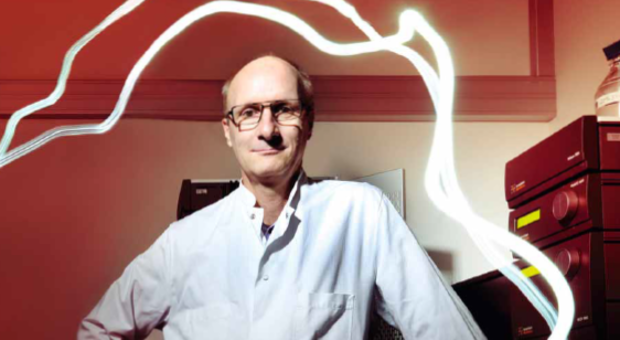If we want our industrial production to be more sustainable, one possible solution is to use enzymes that can break down the waste products from industrial production and convert them to useful materials. One example is keratin, which is present in the hair, hooves and horns of slaugh tered livestock. Discovering an enzyme that can break down keratin would allow this waste product to be converted into feedstock.
Jakob Rahr Winther and his team at the University of Copenhagen are currently researching how to develop a method that will make it easier to discover such an enzyme. In 2012, Jakob Rahr Winther, a professor at the Department of Biology of the University of Copenhagen, received a project grant of DKK 1.8 million (€241,000) for research in biotechnologybased synthesis and production. The Novo Nordisk Foundation awards grants to about 10 projects per year from a total funding pool of DKK 20 million (€2.7 million).
– The project funding means that we can develop a screening method that will make it easier to discover new enzymes and variants of enzymes with new properties. The method has resulted in vastly increasing the number of enzymes we can screen. The equipment is also more compact, making it easier to operate, and much fewer materials are used, explains Jakob Rahr Winther.
FROM HUGE TO TINY
The key to the method Jakob Rahr Winther and his team are researching is the use of tiny pellets as a medium to form the enzymes. This significantly benefits the subsequent screening process, in which the enzymes are tested for various properties.
– The method can be implemented using equipment that most laboratories already have. In the future, the method may become the standard in every laboratory. Who knows? It may open up new avenues for research – not simply in relation to enzymes. The method can be used for many other types of proteins and therefore also has potential for developing medicine and for protein research in general. This is really exciting, says Jakob Rahr Winther.
– This is exactly the type of research that we want to promote, explains Henrik Callesen, Chair of the Committee on Biotechnology-based Synthesis and Production Research, which assesses the applications and awards the grants.
– The aim of the project grants is to make biotechnology-based production more sustainable. This is why we support research into methods for improving the use of energy, reducing waste products, increasing efficiency and improving the use of resources, says Henrik Callesen.








